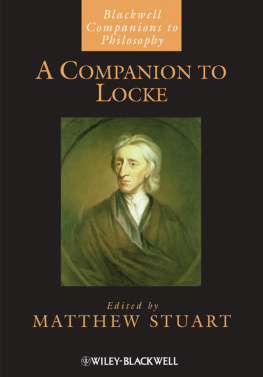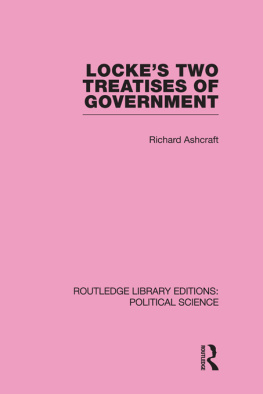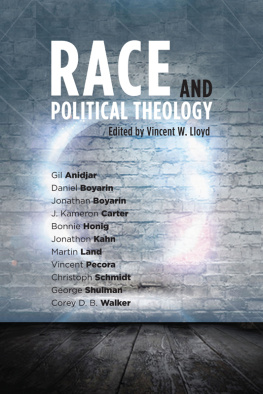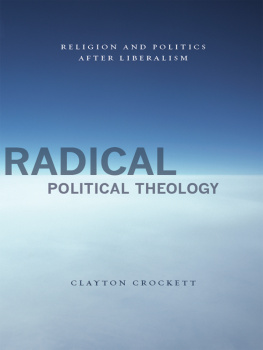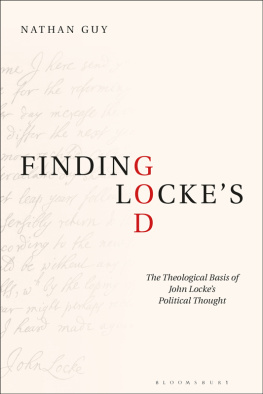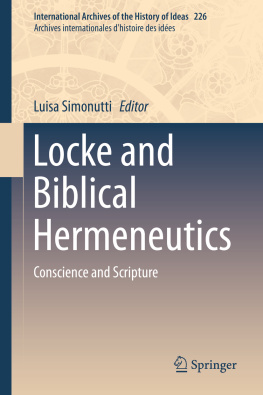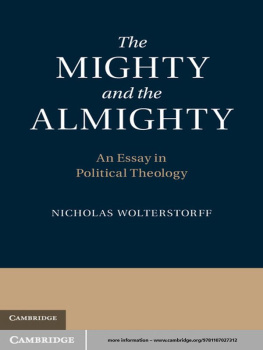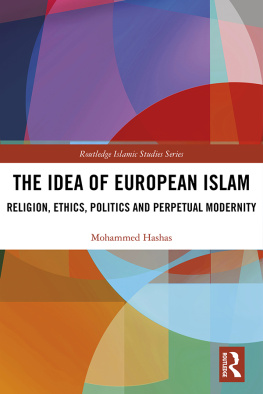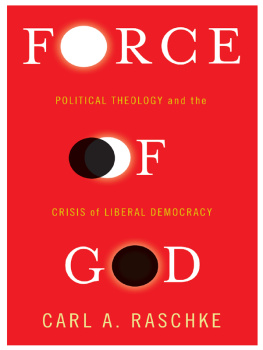Locke John - Religion in public Lockes political theology
Here you can read online Locke John - Religion in public Lockes political theology full text of the book (entire story) in english for free. Download pdf and epub, get meaning, cover and reviews about this ebook. City: Stanford;California, year: 2014;2013, publisher: Stanford University Press, genre: Religion. Description of the work, (preface) as well as reviews are available. Best literature library LitArk.com created for fans of good reading and offers a wide selection of genres:
Romance novel
Science fiction
Adventure
Detective
Science
History
Home and family
Prose
Art
Politics
Computer
Non-fiction
Religion
Business
Children
Humor
Choose a favorite category and find really read worthwhile books. Enjoy immersion in the world of imagination, feel the emotions of the characters or learn something new for yourself, make an fascinating discovery.

- Book:Religion in public Lockes political theology
- Author:
- Publisher:Stanford University Press
- Genre:
- Year:2014;2013
- City:Stanford;California
- Rating:3 / 5
- Favourites:Add to favourites
- Your mark:
- 60
- 1
- 2
- 3
- 4
- 5
Religion in public Lockes political theology: summary, description and annotation
We offer to read an annotation, description, summary or preface (depends on what the author of the book "Religion in public Lockes political theology" wrote himself). If you haven't found the necessary information about the book — write in the comments, we will try to find it.
Religion in public Lockes political theology — read online for free the complete book (whole text) full work
Below is the text of the book, divided by pages. System saving the place of the last page read, allows you to conveniently read the book "Religion in public Lockes political theology" online for free, without having to search again every time where you left off. Put a bookmark, and you can go to the page where you finished reading at any time.
Font size:
Interval:
Bookmark:
Cultural Memory in the Present
Hent de Vries, Editor
RELIGION IN PUBLIC
Lockes Political Theology
Elizabeth A. Pritchard
STANFORD UNIVERSITY PRESS
STANFORD, CALIFORNIA
Stanford University Press
Stanford, California
2014 by the Board of Trustees of the Leland Stanford Junior University.
All rights reserved.
No part of this book may be reproduced or transmitted in any form or by any means, electronic or mechanical, including photocopying and recording, or in any information storage or retrieval system without the prior written permission of Stanford University Press.
Printed in the United States of America on acid-free, archival-quality paper
Library of Congress Cataloging-in-Publication Data
Pritchard, Elizabeth A. (Elizabeth Ann), author.
Religion in public : Lockes political theology / Elizabeth A. Pritchard.
pages cm (Cultural memory in the present)
Includes bibliographical references and index.
ISBN 978-0-8047-8575-4 (cloth : alk. paper)
ISBN 978-0-8047-8576-1 (pbk. : alk. paper)
1. Locke, John, 16321704Religion. 2. Political theology. 3. Secularism. I. Title. II. Series: Cultural memory in the present.
B1298.R4P75 2013
322'.1092dc23
2013013419
ISBN 978-0-8047-8887-8 (electronic)
Contents
Acknowledgments
This book has been a long time in the making. I wish to acknowledge the following people for helping me to place this book in your hands. My colleagues John Holt and Jorunn Buckley gave me the push I needed to get to the next level. Bowdoin College, and specifically the Faculty Development Committee, provided financial support for a years sabbatical for research. I thank Suzanne Cunningham Dickie and Paul Franco for reading draft proposals. I am very grateful to Elizabeth Castelli and Kathleen Roberts Skerrett for encouraging me to get this material out to publishers. I thank the anonymous reviewers, who provided such detailed reports and generous praise. Tyler Roberts provided just the words I needed to hear for a difficult chapter. Larisa Reznik inspires me to be a better thinker and teacher. Editor Emily-Jane Cohen and assistants Emma S. Harper and Tim Roberts are the epitome of professionalism, timeliness, responsiveness, and grace; Mimi Braverman came through with a quick and thorough copyediting job. Lynn Brettler is a dream of a departmental coordinator. I thank Colin Beckman for bibliographic support. Chick Pritchard and Pam Pritchard celebrated with me and kept tabs all along the way. Props to Dan Pritchard for continually hounding me about this project. My heartfelt gratitude to Cheryl Frodermann for being a consistently dear and supportive friend. A long-overdue thank you to John Hladky for allowing me to carve out time to get this done. Finally, to Jack, Calla, and Madeleine, for sharing with me all the joys and drama of youth.
Introduction
Stories of secularization routinely read as enormous cleanup operations. Mixed-up religious and political powers are finally extricated and confined to their respective rooms, possessive spirits are sent packing, liminal and festive orgies are curtailed, and boundaries are installed all around to prevent the indiscriminate mixing that would confound the aspirations of rational actors, nation-states, and capitalist markets. In this book I turn this conventional wisdom on its head and offer a reading of secularization as the promotion of the worldliness of religion. Thus, rather than seeing secularization as requiring the privatization of religion, I argue that secularization is religion placed into circulation. Moreover, I argue that such a project is advocated by John Locke (16321704) as part of a political theology.
Locke is frequently summoned to justify readings of the secular as entailing the privatization of religion. His distinction between state and church is linked with those between public and private, and body and soul, and it is widely assumed that Locke simply tucks religion into the second categories of these ready-made pairs. The problem is that these categorical distinctions and their attendant meanings are taken for granted. It is assumed that these are binary oppositions, that they represent well-known and distinct orders, places, or operations, and that they have remained largely unchanged for more than 300 years. In my reading of Locke I do not take these terms as settled but in the process of formation. Rather than confining religionas though this category, too, was a settled oneto a private, even internal and individual, space of belief, I argue that Locke recasts religion as the basis of the distinction between private and public. Lockes political theology endows humans, as the property of the divine, with an inalienable transcendence that grounds rights, and promotes the conversion of religion into persuasions and fashions, suitable for circulation, debate, and judgment in the public sphere.
For his part Locke did not regularly use the distinction between public and private, and they do not easily map onto his distinction between civil and ecclesiastic power or between magistrate and conscience. Locke suggests that private matters are those that have no bearing on others. This suggests that he would regard as public that which has a bearing on others, such as when he insists that the prerogative of the magistrate must be directed to the public good. Although the public is sometimes conflated with the political or with the state, I agree with Charles Taylor that the modern public functions as an independent check on political power. My sense is that Locke is looking to promote a public or civil society distinct from the state. He refers to public meetings or civil assemblies in cities, courts, and markets. He also disagrees with the assumption that civil assemblies are consistently public and open to everyone, whereas religious assemblies are necessarily private. Moreover, Locke is adamant that the highest duty for everyone (including the magistrate) is to attempt to persuade others as to what one regards as religious truth. This indicates that Locke envisions religion, including religious difference and dissent, to be precisely the sort of thing that ought to go public.
Locke never loses sight of the idea that the challenges, risks, and opportunities posed by differences are not merely epistemologicalnor, in my view, should we. This point is frequently overlooked. For instance, Lee Ward acknowledges that Locke never asserts the necessity to privatize religion, only the need to transform religion from self-justifying moral absolutes into probabilistic claims and contestable premises amenable to discursive engagement.conflict is a matter of debate. But this is not an accurate characterization of Lockes context. At the time of Lockes writing, religions ability to affiliate bodies across vast spaces or to segregate them despite close quarters was unrivaled. Religion determined which bodies ate together, traded, prayed, married, had sex, and made bodies that would, in turn, belong to the religious body of their parents. If emergent nation-states and their colonial satellites were to succeed at creating sturdy affiliations above, across, or alongside religious bodies, they would have to reconfigure religions hold on bodies, not pretend that religion and the body would simply part company. In Lockes context, then, religion is not already extricated from the body and its attendant valences of force, infection, sexuality, family, and polity. Thus the challenge was (and still is) to enable divergent bodies and ideas to circulate and even link up without (or at least with a significantly reduced risk of) offense or injury.
If pressed to construe my account of Locke in terms of relevant binaries, then the key ones here are that of body and sign and coercive or punitive power versus persuasive power. Locke certainly looks to dissociate religion and bodies. He argues that true religion is not a weapon pointed at bodies, nor is it instantiated in the wasteful labor of religious ritual. For Locke religions coin is that of opinion, argument, persuasion, and fashion. Lockes attempt to create some distance between individuals and their religiosities may be seen as an early critique of identity politics. Yet Lockes reluctance to rely on words and fashions to create linkages between individuals prompts not only a sophisticated reckoning of the valences of power associated with body and communication but also recurrent attempts to enlist the body in order to secure a political order. Given his ongoing negotiation with religion, body, speech, and power, Locke challenges accounts of the secular that portray it as the progressive translation of religion into speech, that is, contestable truth claims. These accounts draw on the binary of body and speech to portray religious individuals as bound up with their religiosity and secular individuals as enjoying a critical and voluntary distance from such obligations. Saba Mahmood draws on this assumption to argue that liberal secularists cannot recognize the
Next pageFont size:
Interval:
Bookmark:
Similar books «Religion in public Lockes political theology»
Look at similar books to Religion in public Lockes political theology. We have selected literature similar in name and meaning in the hope of providing readers with more options to find new, interesting, not yet read works.
Discussion, reviews of the book Religion in public Lockes political theology and just readers' own opinions. Leave your comments, write what you think about the work, its meaning or the main characters. Specify what exactly you liked and what you didn't like, and why you think so.



